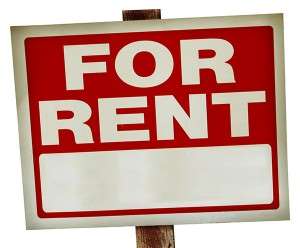THE KEYS TO BUYING A PROPERTY INVESTMENT IN SPAIN: HOLIDAY OR LONG-TERM RENTAL?

Except for 2020 due to the pandemic, over the last few years the interest of foreign investors significantly increased in buying a property investment in Spain. This goes both for holiday and long-term rentals. Many sale operations of homes in Andalusia, especially in touristic areas like Costa del Sol, are mainly intended to be used for lettings to enable the buyer to obtain gains from the property investment.
Among these investment buyers, many are European citizens not resident in Spain, from countries such as the Netherlands, Belgium, England, Sweden, Finland, France or Germany. According to a report issued by the OMAU (Observatory for the Urban Environment of Málaga), the city of Malaga has gone from having 14,885 total holiday lettings in 2015 to 54,685 in 2021.
Get informed about where to invest in the purchase of a property
There are four things to be taken into account when making a decision about where to buy and the price to pay.
- Average price or cost of homes. If homes are very expensive, it will obviously be more difficult to amortize or recover the investment by letting it.
- Average price or cost of rent. If the average rent is very low, the profit or gains will be lower and more time will be needed to achieve the desired returns.
- Tourism potential of the area where you seek to invest. It is obvious that, in terms of holiday lettings, beachfront properties, for instance, show periods of very high returns when let for holidays. Cultural or touristic cities like Malaga, Cadiz or Seville, for instance, are attractive to tourists for a large portion of the year.
- Maintenance expenses and tax costs to be paid for the rental. Holiday and long-term lettings have very different taxation considerations in Spain.
Calculate the ROI-profitability of a property investment in Spain
The most simple Return-On-Investment formula would be to start by calculating the gross income from rent per year, divide it by the purchase price and multiply the result of this calculation by 100 to obtain your returns. Let’s use a few examples:
Ruud, a Dutchman from Utrecht, is thinking about buying a new build home in Málaga, on the east side, which is one of the most expensive neighbourhoods, at a price of 470,000 euros, including conveyancing costs. He is thinking about letting it and has learned that the average rent would be around 1,400 euros per month or 16,000 euros per year.
Return-on-investment calculation long-term rental A:
- €16,800 / €470,000 = 0.0357
- 0.0357 x 100 = 3.57%
In other words, for Ruud, letting the home would mean recovering 3.57% of his investment per year. Once again, our friend Ruud is thinking of buying a home in Antequera, very similar to the one in Malaga, but its price is 150,000 euros, including conveyancing. He is thinking of letting it and has seen that the average rent is around €550 per month of €6,600 per year.
Return-on-investment calculation long-term rental B:
- € 6,600 / €150,000 = 0.044
- 0.044 x 100 = 4.4%
In other words, every year the rental of the home allows the buyer to recover 4.4% of the investment made.
How can you calculate the returns from a home used for holiday lettings?

The formula above is good for a long-term let, not for holiday letting. In the case of holiday homes, calculating returns is much more complex and it’s impossible to apply a standard formula, as prices present a great deal of variation and depend a lot on the type and characteristics of the property, its distance from the beachfront, amenities like a pool and gardens, etc. There are also big differences in rental prices due to seasonality.
According to data from the rental platform Holidu, published recently, analysing the supply and bookings for summer 2022 in Costa del Sol, the highest price per night for homes in the province of Malaga can be found in Las Chapas, Puerto Banús, Nueva Andalucía in Marbella, followed by San Pedro de Alcántara, Alhaurín de la Torre, Alhaurín el Grande, Estepona and Frigiliana.
Other coastal areas in Cadiz, such as Sotogrande, and the tropical coast made up by Almuñécar-La Herradura, also show a high volume of bookings for this summer 2022.
Think about fixed property and rental expenses
The fixed costs of a home tend to be: property taxes (IBI), co-ownership charges, waste disposal rates and income tax for non-residents, which would be paid during periods when the home is not let. Also, you shouldn´t forget about potential interest costs for your Spanish mortgage.
Likewise, when talking about a home for holiday letting, in most cases the owner is unable to manage and maintain the rental due to lack of time, for which reason it would be necessary to add the management expenses of the agent taking care of letting it. These can be around 18% to 24% of the rent received.
We also need to take into account tax costs or expenses to be paid on the profit from this letting in Spain, which I will be covering in more detail below. In short, if the person who owns the property is resident in Spain for tax purposes, when the property is rented as the tenant’s first-residence home, about 60% of the net profit is exempt from taxes. However, if the home is let for holidays or the owner does not reside in Spain for tax purposes, no exemption applies.
Consider other options: profit from holiday lettings in rural homes

Without a doubt, this is one of the types of properties with the most benefit from the pandemic when it comes to holiday lettings, as demand for homes of this type has increased dramatically over the last few years. These homes, with a pool, a garden and land, are in very high demand for rentals during holiday periods. This has also caused an increase in prices of these properties, due to the interest of foreign investment buyers.
Our own clients, to whom we provide legal advice during the process to purchase a rural home in Andalusia, have told us about the large number of bookings their rustic properties receive in the holiday lettings market. Areas such as La Axarquía, the Guadalhorce valley, the Ronda Serranía or Sierra de Mijas can be very interesting for investors in the property market.
If you’re thinking about buying in Malaga, be aware of the average rent prices
In terms of long-term (non-holiday) lettings, according to a study of the Idealista property website, in Malaga the rental price for a home in May was 10.90 euros per square metre, which represents an increase of 16.40% compared to the same period in 2021 and of 6.6% compared to February this year.
For cities, the rental price increases during 2022 have been very significant. For instance, Casares has accrued an increase of 27.80%, Estepona of 24.80%, Mijas of 24%, Marbella of 21.70% and Fuengirola of 19.60%. In the city of Malaga, the increase has been 10.1% in 2022 and it is one of the most expensive cities in Spain when it comes to renting a home.
What are the requirements for a property to be used for holiday lettings?
In Andalusia, in order to let a home for holidays (contract of shorter than 2 months), it is necessary to register it before the Andalusian Tourism Registry (RTA). This registry has different categories depending on the type of property you wish to register.
There are a few technical requirements that the home must meet to be registered and, for urban properties, it must have a first occupation license (LPO) or a habitability certificate.
If the property you intend to buy and register with the RTA is rural, it would not normally have an LPO and, in this case, it would be correct to obtain a resolution of Assimilated out of Ordination (DAFO/SAFO) or Out of Ordination (FO)
RTA Licence through liability declaration
It is important to note that registration with the RTA is done through the submission of a declaration of liability, which means that the person declares, under his or her responsibility, that the home complies with all the technical and legal requirements for registration. There is no need to show at that time whether it meets them or not.
In other words, the Regional Government of Andalusia will register the property automatically in the RTA after submitting the affidavit of liability but reserves the right to inspect and fine the owner in the event that it doesn’t comply with the requirements to be registered in the RTA.
Can the Community of Owners prohibit holiday lettings?
The answer is YES. The Community of Owners, during a meeting, can prohibit holiday lettings in all properties part of the association. Herefore it is necessary to obtain a vote of 3/5 of the total number of owners representing 3/5 of the shares for this resolution to pass. However, it should be noted that for this agreement to be binding on the new owners of the property, it must be officially registered in the Property Register (Registro de la Propiedad).
Let’s imagine you’re thinking about buying a home to be used for holiday lettings in Almuñécar and, when you request an abridged property certificate, it does not show the express prohibition to use it for holiday lettings.
Even if the Community of Owners tells you that a ban has been approved for the total building, you, as the owner, are able to register your property in the RTA and let it to holidaymakers. The community cannot prohibit this use if it does not register the prohibition resolution in the Property Register prior to the issue of your property deed.
Could I pay more charges to the Community of Owners if I use the property for holiday lettings?
Once again, the answer is YES. Community of Owners can increase community charges by up to 20% for properties being used for holiday lettings. Once again, this resolution would require a majority vote of 3/5 of the total number of owners, representing 3/5 of the shares.
However, similarly to the prohibition to engage in holiday lettings, this increase cannot be retroactive and cannot be applied to homes already registered in the RTA.
Are more legal limitations and restrictions expected in the future for holiday lettings?
In large cities and towns that are very attractive to tourists, there are more and more people promoting the limitation and regulation of holiday lettings for homes, due to the nuisance they often cause resident owners.
In the city of Malaga, specifically in the historic centre, there are known problems with noise and dirtiness in some buildings, due to holiday lettings in high demand for (bachelor) parties and general leisure.
The debate in Malaga has been open for a few years and no restrictive measures have been taken so far. However, it is likely for this activity to become limited in the medium and long term since, in this part of the city of Malaga, as in other coastal areas or large cities like Granada, Seville or Cadiz, there is a certain oversaturation of housing of this type.
We should also add that the Regional Government of Andalusia is currently working on a new decree to regulate holiday lettings and it is very likely for this rule to establish further limitations on this activity.
What taxes will I have to pay for the earnings obtained from property investment in Spain?

If you are a non-tax resident in Spain but a citizen of the European Union, Norway or Iceland, you will have to declare 19% of the earnings obtained from holiday lettings in Spain to the Spanish treasury, with the ability to deduct some expenses. However, if you are non-resident in Spain and a third-country national, you will have to pay 24% of the earnings obtained from holiday lettings and you will not be able to deduct any expenses.
If you are tax resident in Spain, your earnings from holiday lettings must be declared in your Personal Income Tax, adding such earnings to your annual income. Therefore, since this is a progressive tax, the higher your returns, the more tax you’ll pay.
Tax benefit on long-term letting
Regarding long-term lets, if you are tax resident in Spain and the tenant intends to use the property as his or her main home, you should know that, under the current regulations, 60% of the net profit would be exempt from your income tax (IRPF).
However, in October 2022, the national government is seeking to approve a new Housing Law. This law, in its current form, would reduce the deduction to 50% but it could increase to 60%, 70% and 90% for various reasons, such as refurbishing the home, renting to people younger than 35 and the home being in an area with very high rent prices or when the tenant is a government entity or non-profit organization.
What other advantages can you get from holiday lettings compared to long-term letting?
The first would be the possibility for the owner to use the home during different periods, which would entail being able to enjoy it whilst obtaining an income or gains from it. The second would be that, if there is a bad tenant in a long-term letting, one that stops paying and refuses to leave the property, the legal eviction process is very slow and it is unlikely for the unpaid rent or court costs to be recovered.
At a minimum, between 6 and 9 months would pass from the time that a claim is filed in court before the tenant is evicted. It could take even longer if there are dependent children. As you may imagine, there are tenants who leave properties in deplorable condition when they know they are being kicked out on a specific date.
An additional advantage of holiday letting is that, if you want to sell your property, you have possession of the property and you can do so immediately. If there is a long-term tenant and this is his or her usual home, the law states that he or she will have 5 years to live there and can force the owner to comply with the contract for that time. Of course, unless the new buyer accepts and agrees to continue the lease.
Legal advice on property investment in Spain
In short, inform yourself and get specific advice in this process. Remember that C&D Solicitors is a legal firm specializing in providing advice to foreigners during the purchase of property in Malaga and Andalusia, with over 15 years of experience.
Author: Gustavo Calero Monereo, lawyer at C&D Solicitors, Torrox, Costa del Sol (Andalusia)




















